Celebrations to mark the 100th anniversary of the Communist Party of China (CCP) have already begun across the country. The official 100-year anniversary is on Thursday, July 1, 2021.
Celebrations for the centennial of the world’s largest party include a huge gala performance on Monday, an exhibition of historical material, and an award ceremony for outstanding party members.
The Chinese Communist Party (CCP), which came to power in China almost 72 years ago, was founded in 1921.
With nearly 92 million members, the CCP is the political organization that governs almost every aspect of life within the country and has the ambition to reshape the post-war world order that until then has been captained by the United States and its liberal-democratic values.
In January 2021, China’s President Xi Jinping, who is also general secretary of the Communist Party, told cadres of PPC members that regardless of the world upheaval, China was “invincible.”
Xi Jinping stressed that: “Judging by how this pandemic is being handled by different leaderships and [political] systems around the world, [we can] clearly see who has fared best,” at a meeting at the party’s central school on January 11, 2021, five days after an angry mob stormed the Capitol in Washington. Xi continued, “Time and history are on our side, and therein lies our conviction and resilience, and why we are so determined and confident.”
Communist Party supporters argue that it was only under his leadership that China got where it is today. The party – according to organizers – will help realize the rejuvenation of the Chinese nation. It is what Xi has called the “Chinese dream.”
Obviously, CCP officials try to ignore not-so-positive events, such as the tragedies of the Cultural Revolution and the “Great Leap Forward” where millions were persecuted or starved to death.
Why is the 100-year anniversary of the Chinese Communist Party (CCP) important?
As mentioned above, the CCP is the most powerful single party in the world and responsible for ruling the world’s second largest economy. Moreover, it will probably rule in the near future the world’s largest economy with one of the largest military forces except for the United States.
In other words, what happens in China, affects and will further affect the lives of almost any human being on the planet.
If there is a revolution or the collapse of the CCP as occurred in the Soviet Union in the late 1980s, and given the global economic integration between China (the factory of the planet) and the rest of the world (the consumers and exporters of commodities), the negative consequences for the world economy and globalization as a whole will be immeasurable.
How does the Chinese Communist Party (CCP) stay in power for so long?
It does so with a hybrid of political-ideological authoritarianism and considerable economic freedom.
So far, this combination has worked well. But to stay in power, the CCP, according to The Economist magazine, needs more specifically to maintain a combination of ruthlessness, ideological flexibility, and economic growth.
The ruthlessness was most clearly demonstrated during the armed response that resulted in the massacre of pro-democracy demonstrators in Tiananmen Square (Heavenly Peace Square) in 1989. The result: The revolution did not take place and the CCP is still in power.
The ideological flexibility comes from the fact that a self-styled “Communist “party accepts and embraces a relatively free market economy, and with a fundamentally universal private property system.
Economic growth ensures that the general population remains content, and thus does not challenge the Communist Party’s leadership and governance with protests and uprisings.
As long as these 3 factors are present, it is difficult to imagine a change of government and therefore direction of China, its economy, and its political system.
How does the West view the growing strength of China and the CCP specifically?
The idea of rivalry between China and the West can be deeply problematic because it neutralizes the possibility of cooperation on world problems like climate change, terrorism, international corruption, and so on.
Not necessarily the techno-autocratic system (based on mass electronic surveillance) of China and the liberal-democratic one of the West need to compete in all fields. Even, the European Union has already classified China as a systemic rival, but a trading partner and in global problems.
China has also not been shy and has increasingly defended its system of government as a better alternative than the liberal democracies of the West. Furthermore, its worldwide Belt & Road infrastructure program, the militarization of the South China Sea, and border conflicts with India have shown that China wants to become much more global.
So it is no surprise that more and more American administrations see China as a systemic rival in all areas and from the time of President Obama with his “pivot to the East” through Trump and Biden, have increased economic, military and diplomatic pressure against China (and the CCP by the way) almost amounting to a new “Cold War.”
With economies far more intertwined between the US, EU, and China, than in the days of the Soviet Union, this new cold war should not be fought, for the good of all.

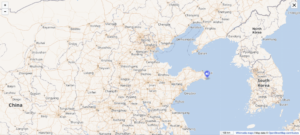

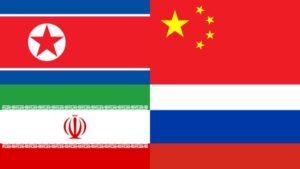
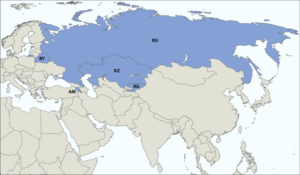


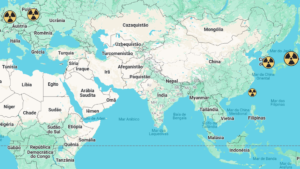
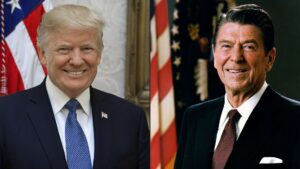

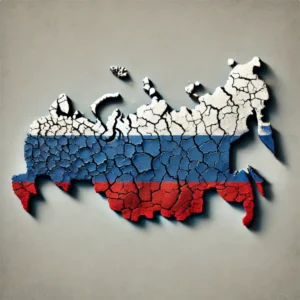
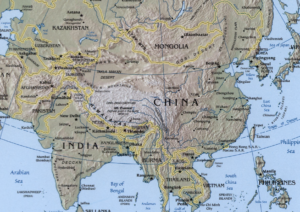








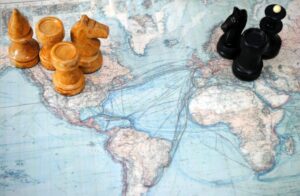

[…] which celebrated the 100th anniversary of its ruling Communist Party on Thursday, July 1, amid much pomp and military grandstanding, is building more than 100 new […]
[…] centenary of the Communist Party of China, Xi Jinping said that the goals of Two Centennials are already taking place by achieving a […]
[…] As long as tensions with China remain, the Quad agenda will likely expand as the democracies of the Indo-Pacific seek to balance China’s growing power. […]